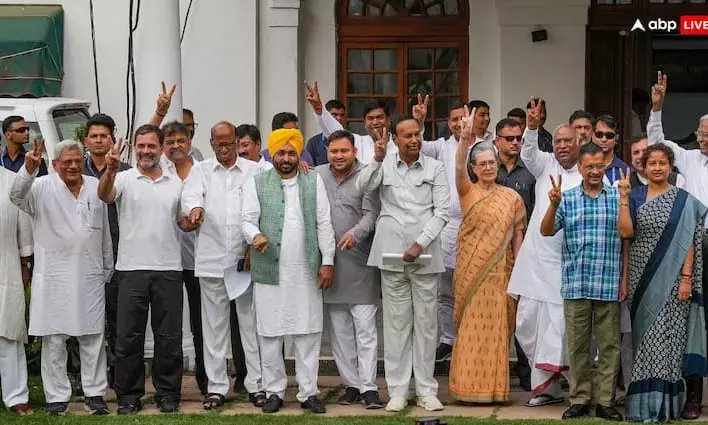
There are no two views that the victory of the Opposition in these elections can be traced directly to Congress leader Rahul Gandhi, as written in these columns earlier in some detail. His ability to contain the Congress arrogance, and his reach out to the people at large created a relatively fear-free environment and provided a much needed alternative to the voters looking to better their future. But there is also no doubt that the Congress party in itself is not a viable alternative and has been found wanting in states where it is in direct fight with the BJP. Its poor performance in Madhya Pradesh, Uttarakhand, Himachal Pradesh, Odisha (where the regional party has been opposed to it as well as the BJP) has been more than noticeable and even in states like Karnataka where it was able to form the government, it was not able to secure the expected results in these Lok Sabha polls.
Most of the seats for the Opposition have come from states where the Congress stitched up an effective alliance with the regional parties. Game changers have been Uttar Pradesh where Akhilesh Yadav used a strong campaign and the solid organisation of the Samajwadi party to prise valuable seats from the Yogi led BJP government; and Maharashtra were Udhav Thackeray and Sharad Pawar were able to deliver the state to the I.N.D.I.A bloc. In Kerala the Congress party did well but the opposition here was the Left that is part of the Opposition conglomeration in other states and at an all India level. Thus, a major task in front of the Congress leadership is to build a viable, fighting party in the states where it is directly contesting the BJP and where there are no regional parties to bail it out.
This will require skills that the central leadership of the Congress party has still to demonstrate. It is not easy, as Priyanka Gandhi knows from her experience in Uttar Pradesh. The party is non-existent and despite several changes she has still not been able to bring in an effective state president. The Congress membership and agenda in states like UP and Madhya Pradesh mirror the BJP with ‘soft Hindutva’ being preferred to an alternative, strong, progressive narrative. The local leaders in both states are an old fractious lot, and as Kamal Nath proved in MP in the last Assembly elections there is little on the ground to attract the voters. The Congress leaders will have to work in the states to mobilise the remnants of the party; to build a strong organisation; infuse it with life and enthusiasm and then bring in a president from the local talent available. A tough task but highly achievable with the right kind of focus and hard work.
The Congress party, being the largest national party in the coalition, also has the onerous task of keeping I.N.D.I.A united and effective both in and outside Parliament. It is no secret that the regional parties find it easier to squabble than work together, and this has been seen in different coalition government formations in the past. It is fortunate that the Congress party has increased its Lok Sabha tally to a respectable figure, which will give it the authority and the gravitas necessary to manage the regional players. A weaker Congress party would have found the going very rough. On the outside is Mamata Banerjee and the Trinamool Congress party but from her recent statements it would seem that she is willing to cooperate with I.N.D.I.A and the Congress to a greater extent than she had indicated before the elections. A plus here is the defeat of Congress leader Adhir Ranjan Chowdhury who seems to be the reason for her outburst against the national party at one stage.
The BJP will try and play its usual games of divide and rule. But the two factors that are working against it this time is the reduced number of seats in Parliament that makes it weaker and hence less attractive to regional players seeking power; and the tendency of the BJP to literally break and swallow the political parties it embraces. This is likely to be a deterrent for a while, but it will be left to the Congress party to manage the fragile egos of the regional stalwarts and show the same acceptance and tolerance it did while stitching together the coalition. Rahul Gandhi has been able to manage this, and is very much at the centre of I.N.D.I.A that is now looking at the Assembly elections in Maharashtra later this year. An important and crucial litmus test.

